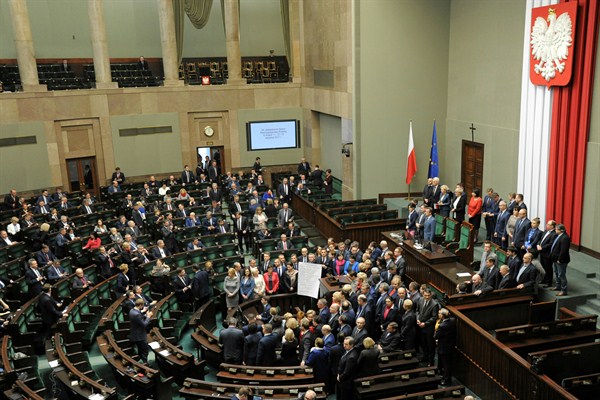The Polish opposition’s month-long occupation of parliament may have come to an end earlier this month, but the deep political divisions behind Poland’s latest political crisis remain. The sit-in began in mid-December, when a lawmaker from the main opposition party, Civic Platform, was expelled from the chamber for using a budget debate to protest the government’s plans to limit media access to parliament and ignoring the speaker’s orders to leave the chamber. That the opposition had to resort to an occupation of the legislature is indicative of its political weakness, and sure enough the controversial populist government led by the Law and Justice Party, or PiS, has emerged on top.
Critics fear that Poland could plunge deeper into authoritarian nationalism or even worse, undermining the European Union at a crucial time. Even the Polish government’s supporters concede that it aims to replace established elites in the biggest turnover of power since the fall of communism. But they assert that Poland remains a democracy and a crucial player that will remain strongly engaged in European politics.
The occupation forced government lawmakers to convene in another room of parliament to pass the 2017 budget—illegally, according to the opposition. Yet the ruling PiS has an absolute majority in parliament, so it would have passed the budget legislation in any case. The occupation was called off after the government made some concessions on media access, though the sit-in was clearly becoming unsustainable.

